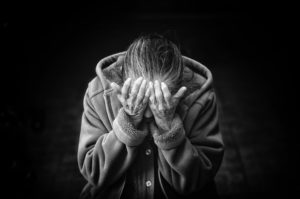by Jenny Rose | Aug 6, 2022 | Connection & Community, Emotional Intelligence
For part 1 of this post, please go here.
I’ve been exploring this quote from Priscilla Shirer:
“Unity does not mean sameness. It means oneness of purpose.
It’s interesting, how a one-line quote can trigger so much contemplation and so many questions.

Photo by Bewakoof.com Official on Unsplash
I’ve had two conversations with two different friends in the last week about how hopeless we feel to bring about positive change in the current political and social climate because people in general seem unable to unify and work together. A clear leader has not stepped forward. We are increasingly split into factions and too busy with in-groups and out-groups to step back and consider the whole picture.
This is not an accident. Unity is a distinct social advantage and a powerful strategy. It’s also apolitical, which is easy to see on the nightly news. Traditionally large groups are fragmenting into smaller and smaller units. Small groups, by means of forced teaming and other manipulations, are usurping power from established organizations. Current political leaders on both sides of the aisle are losing their followers. As traditional boundaries and frameworks dissolve, chaos and confusion sweep us into a new national and political reality, and it is not unity.
And then there’s capitalism. What we all have in common is an assault on our personhood, the subsummation of a human being into a cash commodity. In other words, how much money are we worth? Can we be manipulated into spending money or persuaded to prostitute for marketers and algorithms, politicians and bloated corporations?
Here, let me bend over and pick up that “free” soap for you.
For years, various people have told me I will never be “successful” if I don’t get on Facebook.
For years, I’ve resisted that assertion. Who made that rule? What is the evidence for that? Who benefits from me being on social media when it’s something I absolutely do not want to do?
I am fortunate to have a central pillar of support for my writing in a close relationship. That person is on FB and consistently, week after week, posts links to my work on his page. A couple of weeks ago, upon posting links to my latest Substack posts, FB threatened to suspend him. Why? Because the image that happened to be grabbed with one of those linked posts was a black and white picture of a nude pregnant woman. Nudity. Horrors. (You can go look at the pic here. Scroll down. You’ll know it when you see it.)
So, here’s the thing. An algorithm did that. It was instantaneous.
I’m not writing for algorithms. I’m writing for people.

Photo by freddie marriage on Unsplash
The hypocrisy staggers me. One can spread whatever mis- and disinformation one likes on FB’s platform. Stalkers and doxxers use it. Hate groups and insurrectionists plan to overthrow the government and kill people on it. Ideologues of all stripes churn out toxic poison on a daily basis. Bots and bad actors, both overseas and home grown, are free to roam, and every single keystroke users make is carefully recorded and mined so everyone can receive exactly the information they want to hear along with advertising they’re most likely to respond to.
The platform has grown and grown, become richer and richer, more and more influential, and less and less about connecting people on a healthy individual level. It’s now a sprawling, unmanageable mess. Users are leaving, and the company cannot adequately police and monitor itself or the activity taking place on the platform. So they look for ways to get even bigger and make more money (by making it more addictive and persuading the culture at large everyone needs an account to be “successful”) and write more algorithms to deal with “inappropriate” content (as defined by the company).
Nudity has been judged as inappropriate content, and because of an image grab over which neither the person posting nor I had any control (there were several other non-naked images in those posts), links to my content were deleted and suspension threatened.
That’ll teach us.
What it taught me is I’ve been right all along. Right to create my own blog and website. Right to find a platform like Substack that does not censor my work. Right to write for readers rather than clicks, stats, and algorithms.
My friend on FB has undoubtedly done much to get my work out there and find readers. No question about it, and I’m grateful every week for his efforts on my behalf.
On the other hand, if the price of “success” is participation on FB, it’s too high. I’m not interested. Not even a little bit. In fact, I feel vaguely I must be doing something absolutely right in order to be banned by an algorithm. I tried to squeeze out a tear of fear and self-pity, but I couldn’t manage it. There’s an ever-growing club of thoughtful, intelligent, science-based, talented people who have been suspended or banned (or both) from FB. I’d be proud to hang with them and I’m glad to read them elsewhere.
What does this have to do with unity? Well, FB was originally about connection, yes? First it was a dating hub. (All right, a getting laid hub. Whatever.) Then it was a way to maintain connections over long distance. Then it grew into a monster that presented every user with a way to maximize a “friends” list while allowing bullying, silencing, stalking, deplatforming, identity theft, hacking, and other behavior people feel they can get away with behind the privacy of their screen and keyboard.

Photo by Quino Al on Unsplash
Where is the unity now? What is our oneness of purpose? Oh, right. We’re unified in being income streams for FB. Lucky old FB.
FB lives because we animate it. Never forget that. We’re the ones who decide no one can be “successful” without it.
Oneness of purpose is a great phrase, but what does it really mean, and how do we get there? Is there any such thing as oneness of purpose anymore? Is our world too complicated for that? Can we come up with a simple overarching statement of purpose, or are we too tangled up in our ridiculous labels and ideologies, too distracted by our outrage and all the people wrong on FB and other social media, to raise our heads and look at the bigger picture?
Do we want our culture to be run by entities like FB that pay lip service to “friends” and “connection” but in actuality work to make money off discord, fear, and disconnection? Do we want our country to be run by authoritarians and corporations? What’s stronger, a handful of small sticks bound together or a handful of splinters? We the people are not powerful enough to make sweeping change individually. Our power, the power of democracy, is in unity of purpose. If we lose our ability and willingness to unify, we’re at the mercy of whatever bloated, narcissistic, moronic, power-mad, lying clown and his train of minions and hangers-on comes along.
And that’s worked out so well.
What I know is I’m writing for you, whoever you are, reading this page. I’m sitting in my green suede chaise with a cat above my right shoulder on the back, the blinds drawn against the heat, the laptop in my lap, writing for you. I’m not writing for FB or an algorithm. I’m not battering you with advertising. I’m not collecting your data. I’m not writing clickbait. I’m not thinking about success, beyond writing a good post, editing it, and publishing it today. Because that’s what I do on Saturdays. I’m not thinking about the money I’ll make, because all my content both here and on Substack is free at this point.
I have no interest in what you’re wearing, what color you are, to whom you pray, how you vote, if you’re vaccinated, what your biological sex or gender expression is. I don’t care where you live. I don’t care how much money you make or have. I don’t care who you love, but I hope one person you love is yourself. I don’t care how old you are, or what you eat, or what your health status is, or what language and culture you were born into.
If you’re reading this, I’m writing for you. If you find anything of value in my work, I’ve succeeded and we’ve made a connection.
There’s no need to hit a like button for an algorithm.
On the other hand, if you find an artistic black-and-white photograph of a nude pregnant woman offensive, you might appreciate FB’s censorship of “inappropriate” material, and you probably won’t enjoy my work.
And that’s okay, too. You won’t find me polluting the pages of Facebook with my obscene pornography.
Those of you who come to me through C. Leo’s Facebook page may want to consider subscribing directly through Harvesting Stones and/or Substack. I don’t know if he’ll continue to try to post links to me and risk suspension or not.
I’m going to continue to write what I write and use the images I like. I’ll let other people worry about whether I’m a “success” or not.
My oneness of purpose: To connect, to think critically, to explore, to question, to discuss, to create, to make a positive contribution.
What’s yours?

Photo by Morgan Sessions on Unsplash
by Jenny Rose | Jul 30, 2022 | Connection & Community, Emotional Intelligence
“Unity does not mean sameness. It means oneness of purpose.”
–Priscilla Shirer

Photo by Evan Kirby on Unsplash
I’ve been thinking about this quote for a couple of weeks now. It’s especially relevant for these times, when social and political tensions are so high around division and unity.
We’ve understood the strength inherent in unity for a long time, but what exactly is unity? Oxford Online Dictionary defines it as “the state of being united or joined as a whole.” Note ‘sameness’ is not part of the definition.
Division and disconnection, however, are excellent ways to disempower individuals or groups of people. Authoritarians know this and take advantage of successful strategies and tools to achieve social chaos, violence, and play on our innate paranoia and tendency to distrust and blame others. Controlling media and communication as well as the flow of information (facts), stamping out free speech and critical thinking, invalidating science and data, weakening education, and allowing ideologues, fanatics, and seriously disordered people to gain and maintain positions of power are direct frontal attacks on unity.
We can see how highly effective such strategies are. Slowly, we’ve drifted into the belief that unity is sameness. Black and white can’t work together. Men and women are enemies. Republicans and Democrats, left and right, vaxers and anti-vaxers, must all maintain oppositional positions.
But unity does not mean sameness.
Neither can unity be forced. Some time ago I wrote about Gaven de Becker’s book, The Gift of Fear. As far as I’m concerned, this should be required reading for every woman in the world. One of the concepts de Becker has coined is that of “forced teaming.”
Forced teaming is an intentional, directed manipulation projecting shared purpose or experience where none exists. It’s an effort to force premature trust and false intimacy. The example de Becker uses involves a strange man approaching a woman juggling bags of groceries and offering to help. Ignoring the response of “No, thank you,” the man speaks in an insistent, friendly, pleasant way of “we.” “We neighbors need to help one another out.” The woman, polite and not wanting to be unpleasant to this nice man, acquiesces. She unlocks her door and lets the man in with a couple of bags of her groceries.

Photo by Peter Forster on Unsplash
Forced teaming is extremely hard to deal with because it’s subtle, and rejecting it feels rude.
Rude.
I tripped over that word and fell flat on my face. My inability and complete unwillingness to ever be rude has handcuffed me my whole life. It’s opened me up to abuse and trauma, silenced me, and fueled my self-hatred and self-harm.
All because I didn’t want to be rude.
I never consider whether someone is being rude to me. All I have room for is the desire to avoid behaving in such a way at all costs.
Ladies, when a strange man approaches us in a vulnerable situation, it’s rude. And dangerous. He may mean well. He may not. We can’t tell and we’re fools if we trust a strange man when we’re in an unsafe situation. I don’t care how well he’s disguised as Prince Charming or how solicitous and warm and friendly he is. Forced teaming does not occur in a situation of coincidence. It’s deliberate and directed at manipulating us. Are we unable to push past the taboo of rudeness and say, “I didn’t ask for your help and I don’t want it”? Would we rather put ourselves at real risk for violence? Is the social mandate against rudeness, especially for women, that strong?
It’s not, when I lay it out like this, on the screen, in words. Of course I can see how foolish it is to put manners ahead of my own health and safety. But in the moment, I’d be a woman who didn’t notice my “No, thank you,” was ignored. I wouldn’t want to make a fuss or a scene. I wouldn’t want to hurt the nice guy’s feelings. I wouldn’t want to be a bitch.
I wouldn’t want to be rude.
Oxford Online Dictionary defines rude as “offensively impolite or ill-mannered; startlingly abrupt.”
Notice the subjectivity of that definition. Many people currently appear to believe disagreement is rude. Biological fact is rude. The truth is rude. Boundaries are rude. Questions are rude. Discussion and debate are rude. Speaking up in self-defense is rude. Saying no is rude.

Photo by Gemma Evans on Unsplash
Rudeness is tricky. We all have a private list of rude behaviors that make us cringe. It’s important to note the list varies from person to person. I’ve known people who were brought up to consider sneezing out loud rude. They go through all kinds of contortions to avoid it, emitting a variety of hilarious sounds. It always makes me smile when I run into this. I wasn’t raised with a prohibition against sneezing, so to my way of thinking it’s not rude if the sneeze is covered or contained and a murmured “excuse me” follows it.
Rudeness is so often in the eye of the beholder.
Of course, those who try to control us with forced teaming and other manipulative techniques will be loud about how rude we are when we refuse to accept those tactics. We’re likely to be publicly shamed and called hateful names.
But we’re less likely to get dragged into a car, raped, or murdered.
It boils down to the old problem of saying no. If we decide saying no is rude, the only polite way to live is to have no power and no boundaries. Who would benefit from a such a compliant and disempowered population?
I like the idea of oneness of purpose. It’s a container for strength, cooperation, and integrity. However, this, too, is a minefield because, to put it rudely, people lie about their purpose and agenda. Forced teaming comes into play. A small group with intentions to grab power approaches a larger, well-established and organized group working for empowerment and support of a marginalized population and says we’re with you! We want the same thing! Look how alike we are! You have to include us!
Individuals and groups who have been marginalized are particularly loath to repel this kind of invasion because they believe in kindness, tolerance, and an equal playing field, and they know from their own experience how painful and unjust systemic discrimination and bigotry are. They are successfully infiltrated, manipulated, and weakened from the inside by the smaller group, who never had any intention of working and playing well with others and only wanted to co-opt the established group’s presence, position, and power for their own ends.
To achieve oneness of purpose, we would have to agree on priorities, have equal access to information (facts) and resources, create strategies and systems to improve our situation, tell the truth, and consent to work with people different from us in a variety of ways.
It sounds lovely. It also sounds like fantasy in our current social context.
Never in my lifetime has unity felt so out of reach.
Never in my lifetime has unity appeared so necessary.

Photo by Helena Lopes on Unsplash
by Jenny Rose | Jul 23, 2022 | Aging, Connection & Community, Emotional Intelligence
As I serial publish my Webbd Wheel series on Substack, I’m discovering some kindred spirits on the platform. Keri Mangis writes a newsletter called The Power Source, and she recently wrote a piece about being an outsider that caught my eye.

Photo by Joshua Rawson-Harris on Unsplash
I’ve written about the longing to belong previously. The desire to feel firmly anchored in family and community is an ache I’ve felt most of my life. Though I’ve belonged a few precious times in my life and I know what it feels like, I know more about what it doesn’t feel like.
Mangis suggests being an outsider is powerful because being an insider is so much work. We trim and prune and espalier ourselves to stay safe in our feeling of belonging. Humans are social animals. We’re neurobiologically wired to fear being outcast and alone.
Childhood is about learning roles, rules, familial and cultural norms, and, for most of us, under which specific conditions we can be loved and accepted and achieve belonging. Unconditional love is not our best thing.
By the time we’re young adults, we know what’s expected of us if we want to belong. The parts of us that don’t fit in are amputated or hidden, and we often live a double life, one secret and one playing to our audience, or we make ourselves into masks and shells, acceptable to our peers, families, and communities, but lacking authenticity or vitality.
Either choice is a lot of work. Making yourself small is exhausting. Ask any woman.
What we really want is for our real selves to belong, our honest, authentic selves, but few of us are lucky enough to find that easily, and the fear of being alone is huge.
We have a tendency to think of maturity as taking place in the first 20 years of life. By then we’re in our adult bodies and generally able to function on our own. We define ourselves as grownups, adults. We take on responsibilities, pursue education and interests, figure out the economics of independence. Some people form partner bonds and raise children. We’re busy in the world and much of that busyness has to do with belonging, taking care of social obligations, participating in production and consumption, and bumping up against limitations, rules, and taboos. We use our manners, follow traffic rules (sometimes), stand in lines, allow ourselves to be directed by signs, and generally follow the same standards of civility we learned in school.
We also subscribe to ideologies and resist change in the form of new information or critical thinking. We can’t endanger our places of belonging. Our identity depends on them.

Photo by Cristina Gottardi on Unsplash
In exchange, we are paid for our work, have friends, family, and community, wear our labels comfortably, and stay safe in the middle of the herd.
Then suddenly we’re old, negligible, invisible, and burdensome.
Then we die.
But what if the first 20 years are just the beginning? What if, as Mangis suggests, we embark on a new level of maturity in late middle age? What if that level requires we outgrow the need to belong and leave the longing for it behind?
I know from my study of power dynamics fear-driven choices indicate power loss. The fear of being outcast and alone is terrible, and so is the fact of it.
However, it is survivable, and it’s also a much, much easier way to live. The degree to which we’ve spent our first 50 years or so living underground or in the shadows is the degree to which our lives simplify if we decide belonging isn’t so important after all.
Suddenly, we can be as big, as expansive, as individual, as happy, as creative, as expressive, and as strong as we choose. We’ve spent 50 years learning about ourselves and the world. We’re no longer overwhelmed with the physiological needs of reproduction. If we give up our fears and struggles around belonging, what could we do with that energy? Belonging is expensive, and so is longing.
Perhaps mid-life crises are really just another growth spurt, a milestone to be celebrated and welcomed.
Instead of framing these years as the beginning of the end, perhaps we could look at them as the beginning of our most authentic years, the years in which we’re less concerned about how acceptable others find us, stop apologizing for who we are, and focus on reclaiming ourselves and belonging in our own skins.
At the end of the day, we belong only to ourselves. We’re not required to give up our power for transformation in order to belong to anyone else.
All we have to do is let go of our longing for belonging.

Photo by Mike Wilson on Unsplash
by Jenny Rose | Jul 16, 2022 | Emotional Intelligence, Feelings, Happiness
Years ago, when I was seeking a divorce, my lawyer asked me one day in the middle of my frustration and fear regarding custody of my boys if I wanted to be right or I wanted to be free.
It was one of the best questions anyone had ever asked me, and I didn’t have to think about my answer.
“Free,” I said. In that moment, I gave up on my rather naïve ideas about justice and cooperation in the process of divorce. I stopped worrying about being right. I understood no one but me was interested in the best situation for the kids. I fought for as much freedom as I could get, not for myself, but for them.
The memory came vividly back to me when I read this article by Arthur Brooks from Big Think. The author describes an interaction with a successful but unhappy financier, who remarks she would rather be special than happy. Her definition of special has to do with professional success. Ordinary people, she says, can be happy. She wants to be more special than that.

Photo by Andrew Loke on Unsplash
I thought about that choice, and I wonder, are special or happy the only two choices? Is there some rule stating one can’t be special and happy?
Why do we believe we have to give up something to be happy?
I’ve written a series of posts about happiness, inspired by the work of Martin Seligman, PhD. I went back and reread those posts.
Can ordinary people be happy but extraordinary people can’t?
Are ordinary people happy?
Is ordinariness shameful? Is happiness a goal only for those who can’t be special in any way, a kind of booby prize?
I don’t believe happiness has anything to do with being ordinary, extraordinary (as defined by whom?) or somewhere in between. It’s a lot more complicated than that. I wonder if we’re losing our ability to distinguish between temporarily satisfying our addictions, expectations, and compulsions while numbing our pain and fear, and feeling true, enduring happiness.
Happiness, after all, is a state of being rather than a state of doing. To some degree we must allow it – give it time, space, and a safe place to exist. It’s not something to pursue or try to create. It’s already within us, somewhere.
(This creation of space, by the way, is a pillar of minimalism. If everything is important, nothing is. One discards until what’s truly important is revealed.)
I jotted down this statement: I’d rather be dutiful, loyal, responsible, a good parent/partner/daughter/sister, rich, powerful, in control, right or successful, than happy. I didn’t think hard about it. I have chosen everything on that list at one time or another in my life. I haven’t chosen happiness or seen it as a choice, and I’ve been unconscious of my belief that happiness can’t coexist with my standards of integrity.
Happiness just doesn’t seem like a worthy goal to me. It’s not culturally sanctioned. Ambition, power, wealth – those are worthy goals. Those are things that matter. Obviously (so obvious it goes without saying directly), those are the roads to happiness. One can be happy, but it must be earned, and happiness is not the goal, just a nice bonus. The real goal is productivity. The shadow side of productivity is consumption.
But productivity is a moving goalpost, and it doesn’t make us happy.
It occurs to me we talk about happiness or unhappiness as a blanket state of being, but it’s really more like Swiss cheese. I feel chronically unhappy about some aspects of my life, and chronically angry about others. Yet every day I also feel periods of happiness when I allow it and take the time to be present in the moment.

When I allow myself to play in the garden, I feel happy.
When I allow myself to settle down with a good book, I feel happy.
When I allow myself to be creative, I feel happy.
When I allow myself to be who I am, I feel happy.
Gardening, reading, being creative, and living authentically take time, intention, discipline, and energy. Discipline. Can you believe it? It takes discipline to remember I’m not a human doing, but a human being. My intrinsic worth as a being isn’t tied to productivity or consumption. The treadmill of productivity is easy. Stepping off and relaxing takes discipline. And that’s not only me.
The nature of addiction (physical and mental dependence) in any form is that it gradually pushes everything else out of our lives. Our addiction consumes our time, energy and money. Anything not in service to the addiction is discarded, including relationships, health, free time, quiet time, and creativity. Our addiction becomes our primary relationship and those around us quickly learn we’re not available for anyone or anything else.
Workaholism and perfectionism are addictions, along with productivity, toxic positivity, substance abuse, eating disorders, over-exercising, and sex addictions.
Happiness is power. That which takes us away from our happiness is disempowering.
Why do we live in, perpetuate, and enable a culture that relentlessly and brutally disconnects us from happiness?
That’s easy. Our individual happiness does not benefit capitalism, because happiness can’t be bought or sold. Capitalism benefits from an unhappy population brainwashed into believing productivity and consumption will make us happy. Who benefits from violence, division, hatred, manipulating our fear, restriction of choice, and disconnecting us from the simple pleasure of happiness?
Those currently in power and determined to stay that way, both governmental and corporate.
Who allows and enables that power-over stranglehold?
We do.
But we could change our minds.

Photo by Cristian Newman on Unsplash
by Jenny Rose | Jul 9, 2022 | Power
When we bought our new house, a flagpole and the American flag came with it.

Photo by David Beale on Unsplash
The day Roe v. Wade was overturned, we took down the flag. I don’t recognize America anymore. The democracy I grew up in is languishing and I no longer feel our government represents the best interests of people or planet. It certainly isn’t interested in surviving and thriving for any but a select few power-over people who are impotent, incompetent, and emotionally bankrupt, not to mention unbelievably stupid. These times are the logical end stages of capitalism. We are so far astray we have made money into a god and worshiping that god has us all on our knees and many of us face down in the street being murdered. I’m not celebrating. I’m grieving. I’m angry.
The pandemic years and increasing awareness and visibility of systemic racism brought the discussion of freedom into daily discourse. What freedom is. What freedom isn’t.
Freedom is power. People who work for power with others focus on supporting an equitable playing field for all. That means some people need to lose some power and others need to have theirs restored so we all have equal access to resource.
Power, by the way, is not defined by money. We’ve been culturally brainwashed to believe it is, but it’s not. Who benefits from the persistent and relentless narrative insisting it is? Are you benefitting?
People who work for power-over are afraid. Fear breeds hatred. Other words for hatred are racism, homophobia, and bigotry. Power-over people, like any tyrant, fear rebellion, and all their energy goes into controlling information and brutally silencing dissent or discussion.
What we are allowing to take shape is a dystopian world. It’s not a movie we’re going to walk out of in two and a half hours. It’s not a science fiction book. It’s not a role-playing game.
It’s real, and it’s really happening. Just like climate change, it’s not something to scare or depress ourselves with and then, like Scarlett O’Hara, tell ourselves we’ll think about it tomorrow. Tomorrow was yesterday. Climate change and the end of democracy are not far-off footsteps in the night-dark and scary forest. They’re here. They’re now. They’re in our tent with us.
Here are characteristics of a dystopian society:
- Communication (misinformation) is used to control citizens.
- Information (facts), critical thinking, and freedom are restricted.
- Citizens worship a figurehead or ideology.
- Citizens perceive they are under constant surveillance.
- Citizens fear change, new information, or new experience. Anything or anyone different is perceived as a threat to existence. Conformity is paramount. Individuality and dissent are stamped out.
- Citizens are stripped of their humanity.
- The natural world is raped, poisoned, and distrusted.
- Controls force citizens to accept the illusion of a perfect utopian world.
Dystopian controls include corporate, bureaucratic, technological, and philosophical/religious entities.
Welcome to the dawn of dystopia, people. For most of us, freedom is slowly vanishing, but it’s still possible to reclaim it. There are people who see clearly and speak and write the truth. Some of us believe in the common good and in living in service to others, to justice, and to the planet. We can fight. We can refuse to be silenced. We can hold fast to one another and balance the growing hate in the world with our love and righteous anger.
I’ll leave you with a couple of thoughts from Toni Morrison:
“The function of freedom is to free somebody else.”
“Freedom is choosing your responsibility. It’s not having no responsibilities; it’s choosing the ones you want.”
Be well. Take care of yourselves and each other.

Photo by Sue Tucker on Unsplash















